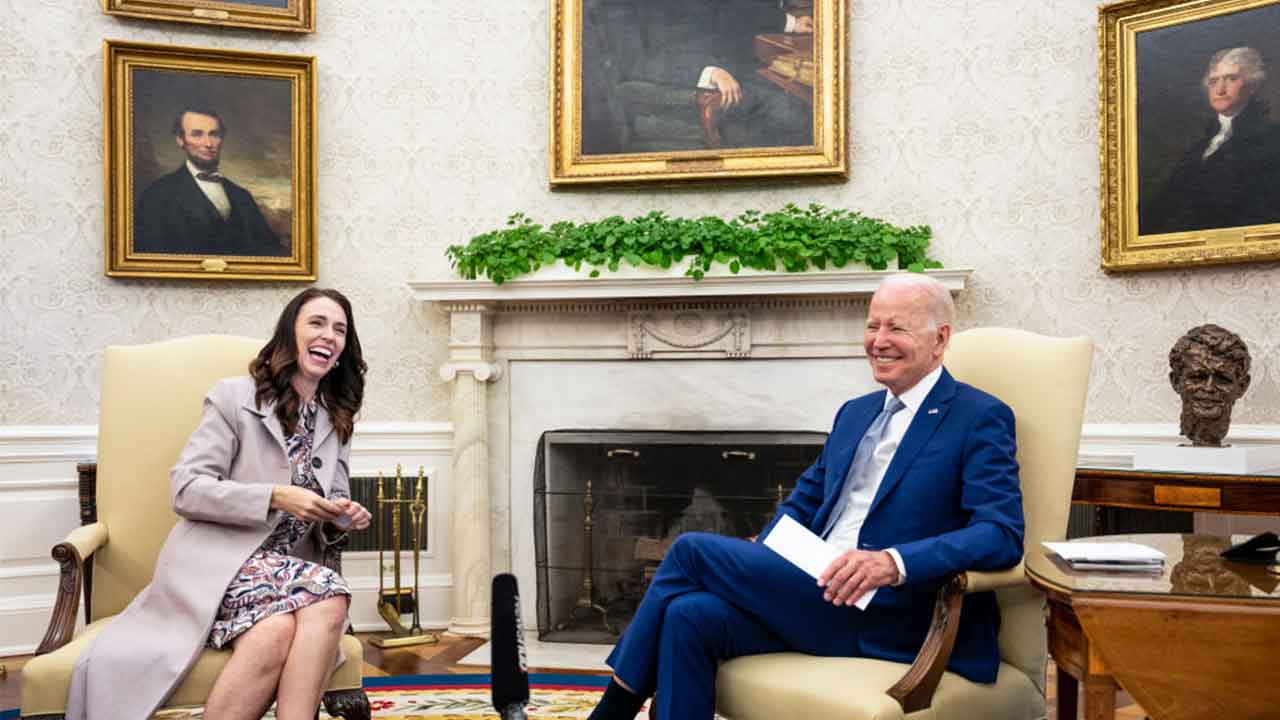Jacinda Ardern welcomed as “good friend” by Joe Biden

New Zealand Prime Minister Jacinda Ardern has left talks with US President Joe Biden on a positive note, saying the interaction pointed to the “warmth” in their relationship as political leaders.
Ms Ardern was initially scheduled to meet with Mr Biden for one hour during her ongoing US tour, but the pair continued to talk for another 30 minutes, as reported by news.com.au.
“I think that is a demonstration of the warmth in our relationship,” Ms Ardern said after the meeting.
Mr Biden welcomed Ms Ardern as a “good friend”, citing the last time they met at the launch of the Indo-Pacific Framework and said: “We need your guidance”.
“You understand that your leadership has taken on a critical role in this global stage - and it really has,” Mr Biden said.
The pair also discussed gun control, online extremism, Ukraine, climate change, and the growing influence of China in the Pacific, with the last issue becoming the main focus as the US attempts to bolster its presence in the region.
“We are in an incredibly difficult international environment,” Ms Ardern said.
According to a senior administration official, the leaders had a “very warm” and “direct” conversation, as the Biden administration looks to step up its cooperation to support the Pacific Island states.
“The President and the Prime Minister met for well over an hour,” the official said.
“The conversation was very warm, very direct, and there was a great understanding between the two of them, as you would expect.
“And there really was discussion about the shared vision for the Indo-Pacific and the importance, in particular, of stepping up engagement with the Pacific Island states.”
In a joint statement after the meeting, both leaders expressed their concern about the security agreement between the People’s Republic of China and the Solomon Islands, which also caused a stir in Australia in April.
“In particular, the United States and New Zealand share a concern that the establishment of a persistent military presence in the Pacific by a state that does not share our values or security interests would fundamentally alter the strategic balance of the region and pose national-security concerns to both countries,” the statement read.
“A freer and more open Indo-Pacific depends on preserving the international rules-based order in the maritime domain.
“To that end, we reaffirm our support for freedom of navigation and overflight, in the South China Sea and beyond, in accordance with the UN Convention on the Law of the Sea (UNCLOS).
“We oppose unlawful maritime claims and activities in the South China Sea that run counter to the rules-based international order, particularly UNCLOS.
“We reiterate our grave concerns regarding the human-rights violations in Xinjiang, and the erosion of rights and freedoms in Hong Kong, which undermines the high degree of autonomy enshrined in the Sino-British Joint Declaration and the Basic Law.”
The meeting comes as China’s Foreign Minister, Wang Yi, finishes his ten-day tour of the Pacific Island region, having visited eight nations in total and raising concerns that deals similar to that between China and the Solomon Islands would be struck with other countries.
Within hours of Ms Ardern and Mr Biden’s meeting, Foreign Ministry spokesperson Zhao Lijian accused the US of “distorting the truth that the cooperation between China and the Pacific Island countries has been in line with regional benefits”.
“China and Solomon Islands have no intention to establish military bases,” Mr Zhao said.
Australia is also making efforts to meet with leaders in the region, with newly-sworn-in Foreign Minister Penny Wong jetting off to Samoa and Tonga for her second visit to the Pacific in nine days.
“We want to make a uniquely Australian contribution to help build a stronger Pacific family - through social and economic opportunities including pandemic recovery, health, development and infrastructure support, as well as through our Pacific labour programs and permanent migration,” Ms Wong said in a statement.
“We will increase our contribution to regional security: we understand that the security of the Pacific is the responsibility of the Pacific family, of which Australia is a part.
“We will stand shoulder to shoulder with our Pacific family in addressing the existential threat of climate change. And we will deepen cultural and sporting ties.”
Image: Getty Images
